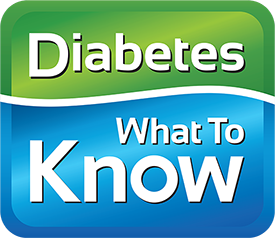By: Melinda Maryniuk
There is no doubt that living through the COVID-19 pandemic is stressful for everyone, but this is especially true for people with diabetes who are older as we are a higher-risk group. The risks are also increased for people with hypertension and a history of heart disease, which is true for many people with diabetes. In short, while people with diabetes and older individuals are not more likely to get the virus, if we do, we are more likely to get sicker and have more serious complications.
Here are 9 tips to help you navigate through these uncertain times:
Be prepared. Even if you feel like you live in a very remote area where being affected by this virus is unlikely, it is best to prepare as if it will come to your neighborhood. Think about all the things you need to be comfortable for several weeks. Make lists. Think about not only the logical things like food, medicine (and of course, toilet paper), but other supplies that you might be happy to have such as printer paper (if you’re working from home) and leaf bags (more time for yard clean up!).
Keep your glucose and blood pressure in range. The risk of complications is higher for those whose numbers are running higher than target. This may mean you’re checking your blood glucose (and blood pressure) a little more often than usual. Talk with your health care team if you have any questions about adjusting your medicines, although this is not the time to stop taking medicines. If you have concerns about a medication (like side effects or price) or are having trouble getting it at your pharmacy, talk to your healthcare professional to figure out other options.
Review your sick day plan. Know what actions to take if you do start feeling under the weather. Make sure you can locate your thermometer in case you need to check for a fever. Don’t panic at the first sign of a runny nose, watery eyes or scratchy throat – remember this time of year is also allergy season.
Be extra careful. Have packages (including groceries) left on the porch or garage. Wear gloves (disposable or washable) to unpack and clean surfaces with a disinfectant wipe. Wearing a mask may help, and can’t hurt (even a homemade cloth one). Assume everyone you come in contact with may be carrying the virus, even your sister who says she feels just fine or your neighbor who is just dropping off some food.
Ask for – and accept help from friends and family. You’re likely very used to being independent, but because you are in a higher risk group, it’s even more critical to avoid contact with others. You’ll know the areas where you could use some help– for example, if it is hard to get home deliveries for groceries, maybe others can help pick them off and drop them off for you (on your porch!)
Take advantage of telemedicine visits to see your doctor as well as a dietitian and diabetes educator. Check with your care providers including your dietitian and diabetes education providers. You may still need a referral from your doctor, but many rules have been changed to allow for telemedicine visits on services that were not covered before.
Keep to your routines as much as possible. You may be “sheltering in place,” but it’s important to keep active and stick to your healthy eating plan. There has been a big increase in online exercise programs and YouTube has a variety of exercise videos for different ages and ability levels. (Now is your chance to try yoga with no one watching you!). Stay connected with friends and family by phone or give video chats (like FaceTime, Zoom or Google Hangouts) a try. They’re fun!!
Know your rights. If you are employed and have any concerns about your work environment putting you at increased risk, remember that if you have diabetes you are covered by the Americans with Disabilites act. Talk to your employer about what accommodations can be made so you feel safe.
Stay connected. It’s great that you’re using Facebook for connections and support. We’ll aim to keep you up to date through our Facebook page. In addition, check out the daily updates on the American Diabetes Association website: www.diabetes.org


